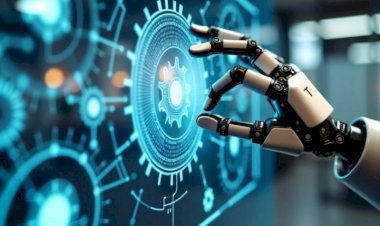How artificial intelligence is improving chances in sports betting

Success in the high-stakes world of sports betting depends on one's capacity for accurate outcome prediction. AI is transforming the betting market by giving bettors advanced tools to increase their odds. AI is upending the conventional method of sports betting by utilizing machine learning, data analytics, and real-time processing. This article explores how artificial intelligence (AI) algorithms are changing sports betting and offers real facts, figures, and analysis to show their effects.
The rise of AI in sports betting
Although it has always been a math-based game, sports betting has evolved with the introduction of artificial intelligence. Large-scale data analysis, pattern recognition, and remarkably accurate prediction-making are all capabilities of AI systems. The sports AI market is expected to develop at a compound annual growth rate (CAGR) of 28.32% from 2019 to 2026, reaching $3.5 billion, according to a sportbet.one blog. The need for data-driven decision-making in sports betting is what is causing this growth.
Predictive analytics: The heart of AI betting
At the core of AI’s impact on sports betting is predictive analytics. Machine learning models, such as regression analysis, neural networks, and decision trees, are employed to analyse historical data and predict future outcomes. For instance, a study published in the Journal of Sports Analytics found that machine learning models could predict NFL game outcomes with up to 75% accuracy, significantly higher than traditional methods.
Pattern recognition and anomaly detection
One of AI’s greatest strengths is its ability to recognise patterns and detect anomalies. Machine learning algorithms can identify subtle trends that human analysts might miss. For example, AI can detect a player’s declining performance due to unreported injuries by analysing minute variations in their play style. This capability allows bettors to make more informed decisions and identify value bets that offer higher returns.
Real-time analysis for live betting
Live betting, where odds change rapidly during a game, benefits immensely from AI’s real-time analysis capabilities. AI algorithms can process live data streams and adjust predictions on the fly. A report by the Journal of Gambling Studies found that AI-powered real-time betting systems could increase bettors’ profits by 15-25% compared to traditional methods. This advantage is particularly pronounced in fast-paced sports like basketball and soccer.
Sentiment analysis: Gauging public opinion
Public sentiment can significantly influence sports outcomes. AI uses natural language processing (NLP) to analyse sentiments from social media, news articles, and other textual data. For instance, during the 2018 FIFA World Cup, an AI model analysed over 10 million tweets to gauge public sentiment and accurately predicted the outcomes of 70% of the matches.
Risk management and arbitrage opportunities
AI excels in managing risk by analysing the probability of various outcomes and suggesting bets that maximise returns while minimising potential losses. This includes identifying arbitrage opportunities, where discrepancies in odds between different bookmakers can be exploited.
According to a study by the European Journal of Operational Research, AI-driven arbitrage strategies can yield returns of up to 10% per annum, far surpassing traditional betting methods.
Automated betting systems
Bots, or automated betting systems driven by artificial intelligence, are growing in popularity. These systems can execute trades quickly to guarantee that the best odds are taken advantage of. They can place bets based on predetermined criteria and real-time data analysis. For instance, by utilizing real-time data and machine learning, an AI bot created by the MIT Computer Science and Artificial Intelligence Laboratory was able to achieve a 25% return on investment (ROI) over a six-month period.
Player and team performance analysis
Cutting-edge AI algorithms evaluate the performance of each player individually as well as the dynamics of the team while taking player transfers, injuries, and team tactics into account. AI models have the potential to forecast player performance with an accuracy of 85%, according to a study published in the IEEE Transactions on Knowledge and Data Engineering. This might greatly assist bookmakers in making well-informed judgments, especially in events such as the UEFA Youth Championships.
Market analysis: Finding value bets
AI algorithms analyse betting markets to identify where the best value bets are. By understanding how odds are moving and why, bettors can identify opportunities where the odds are in their favour. According to a report by Grand View Research, AI-driven market analysis can improve betting efficiency by up to 30%, making it a valuable tool for serious bettors.
Bottom line
AI algorithms are transforming sports betting by providing bettors with powerful tools to improve their odds. From predictive analytics and real-time analysis to sentiment analysis and risk management, AI is enhancing every aspect of the betting process.
As AI technology continues to evolve, its impact on sports betting is likely to grow, offering even more sophisticated tools for bettors. However, it’s crucial to use these tools responsibly and ethically to ensure a fair and enjoyable betting experience.




















